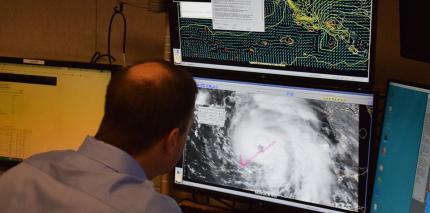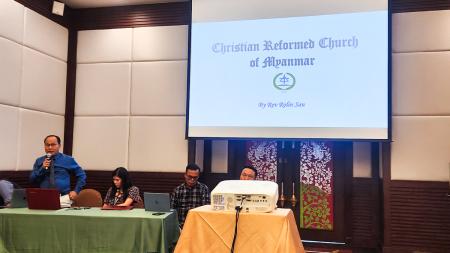Hurricane Michael Hits Florida Panhandle

Hurricane Michael hit the Florida Panhandle as a growing Category 4 hurricane Wednesday, with 140 mph winds, a foot of rain, and up to 13-foot storm surge, affecting people from Tampa to the Alabama state line.
Over 100,000 Florida residents have received evacuation orders and nearly four million are in the storm’s path. Michael is the strongest hurricane to hit the Florida Gulf Coast and Big Bend in decades.
Regional Managers for the southeastern U.S. from World Renew’s Disaster Response Services (DRS) have begun preparations for a response to the storm. They and World Renew DRS staff are collaborating with government and other non-profit organizations to plan for the possible launch of early assessment and rapid response teams into the damage areas as soon as they are accessible.
World Renew prioritizes assisting disaster survivors who may “fall through the cracks” in these communities, such as the elderly, people who live below the poverty line, people with disabilities, and homeowners without insurance or in other circumstances that prevent them from recovering on their own.
World Renew DRS manages approximately 3,000 trained volunteers and is currently active in responding to hurricanes Harvey, Irma, and Maria in Texas, Florida, and Puerto Rico, as well as wildfires on the West Coast and damage caused by Hurricane Matthew in North Carolina in 2016.
This week, World Renew DRS is beginning a response in the Carolinas to September’s catastrophic rain and flood damage from Hurricane Florence. The first volunteer team to begin providing clean up and mucking out services to homeowners affected by Florence arrives in New Bern, North Carolina, on Saturday, Oct. 13, 2018. More rain is expected from Michael the Carolinas this week, where the already saturated ground may put clean-up efforts there on hold.
World Renew specializes in providing home repair and reconstruction services in the recovery process, and offers early assessments, rapid response, training in local community organizing, unmet needs assessment surveys, building estimates, and skilled volunteer work teams as well as short-term work groups.


